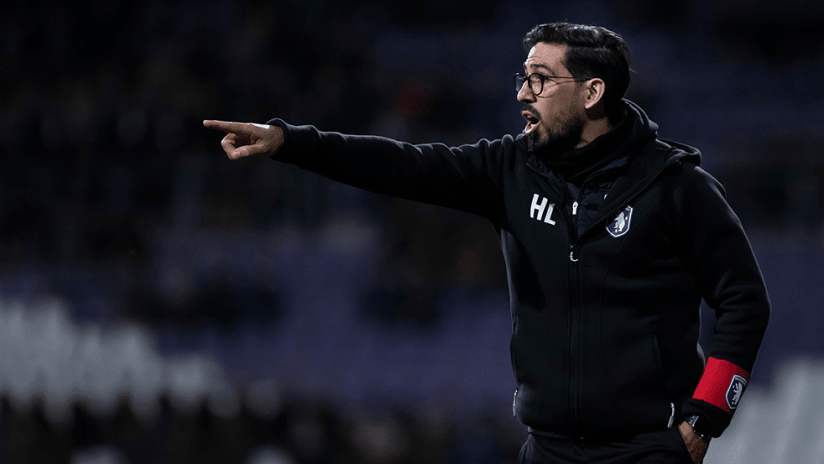The road that carried D.C. United to the hiring of Hernan Losada, the eighth head coach in their 25-year history, was a winding path.
Losada, who arrives from top-flight Belgian side Beerschot, was officially announced as the new Black-and-Red boss 102 days after Ben Olsen, their coach for the past decade, left the post. An active headhunting process was underway for more than two-thirds of that time. We have dependable reporting indicating that the job was provisionally offered to two others, Chris Armas and Gonzalo Pineda, only for those deals to fall short of fruition with an inability to reach final terms.
That lengthy timeframe and the fits and starts within it have left some of the United faithful fidgety. Yet the initial reactions have been largely positive, even though the choice of Losada, a 38-year-old with less than two years of managerial experience and little in the way of MLS ties, carries what MLS conventional wisdom might consider red flags.
Until recently coaching imports in this league were seen as something akin to a roulette spin, with MLS’s particular quirks and cultural contexts perceived as too unique for outsiders to quickly or easily come to grips with. The good work more recently done by the likes of Tata Martino, Matias Almeyda and Ronny Deila has chipped away at this manner of thinking, and over the past year or two the number of imports has ticked upwards markedly.
An Argentine playmaker during his playing career, Losada broke through at Buenos Aires club Independiente and seems so far to be a new branch on the same coaching tree as Martino and Marcelo Bielsa, the living legend currently in charge of Premier League side Leeds United.
D.C. decision-makers Steve Kaplan, Jason Levien and Dave Kasper see reason to believe that his attacking mindset and uptempo, press-oriented principles can do for United what Almeyda’s version of Bielsismo has done for the San Jose Earthquakes – particularly given that Kasper, their chief soccer officer for most of this century, knows the MLS landscape intimately when it comes to acquisition mechanisms and salary budgets.
Real talk: If you watched D.C. for an extended period last year, you’ll recognize the particular appeal of this idea. Though they did mount an unlikely late push for the playoffs under interim boss Chad Ashton that fell just short, for most of 2020 United weren’t just unsuccessful. They were also uninspiring in aesthetic terms.
That sort of double-whammy is a major problem in a cultured soccer market like the D.C./Maryland/Virginia region, where both results and style are expected.
While it may seem like sepia-toned memories for younger observers, United and their fanbase carry a rich tradition of successful, attractive soccer, a legacy they’ve remained fiercely proud of even as their MLS surroundings changed dramatically. This is a world capital with a footballing mindset to match, where supporters would prefer giving an outside perspective a shot over a more familiar domestic name they associate with a rival, as was the case with Armas.
Add in the fact that the DMV is home to a massive Hispanic population that United have struggled to fully connect with in recent years, and the upsides of this hire come into clearer focus. The Black-and-Red’s salad days featured Latino standouts like Marco Etcheverry, Jaime Moreno and Christian Gomez pulling the strings in the attack.
Anything that can move the club in that direction will be welcomed by the fans, most of whom grew weary of the attritional, risk-averse style – “Bennyball” was the shorthand, though Olsen wasn’t wholly responsible for it – adopted by necessity in the cash-strapped final years at RFK Stadium. They believe their squad is capable of something more, and it's not hard to see why.
There’s plenty to work with on United’s roster, including an intriguing crop of Homegrowns whose huge potential reflects the talent-rich local youth soccer scene. What’s needed is philosophy and direction, and Losada – who speaks four languages – seems eminently capable of providing that. And even if he has to learn some hard lessons on the job, I expect he’ll find that the community around his new club are ready to accompany him on that journey.













